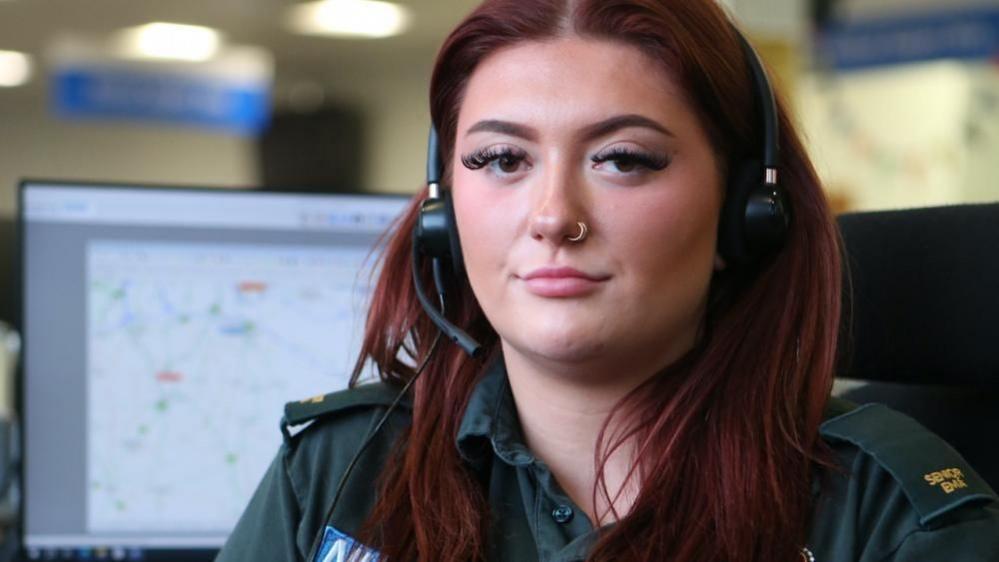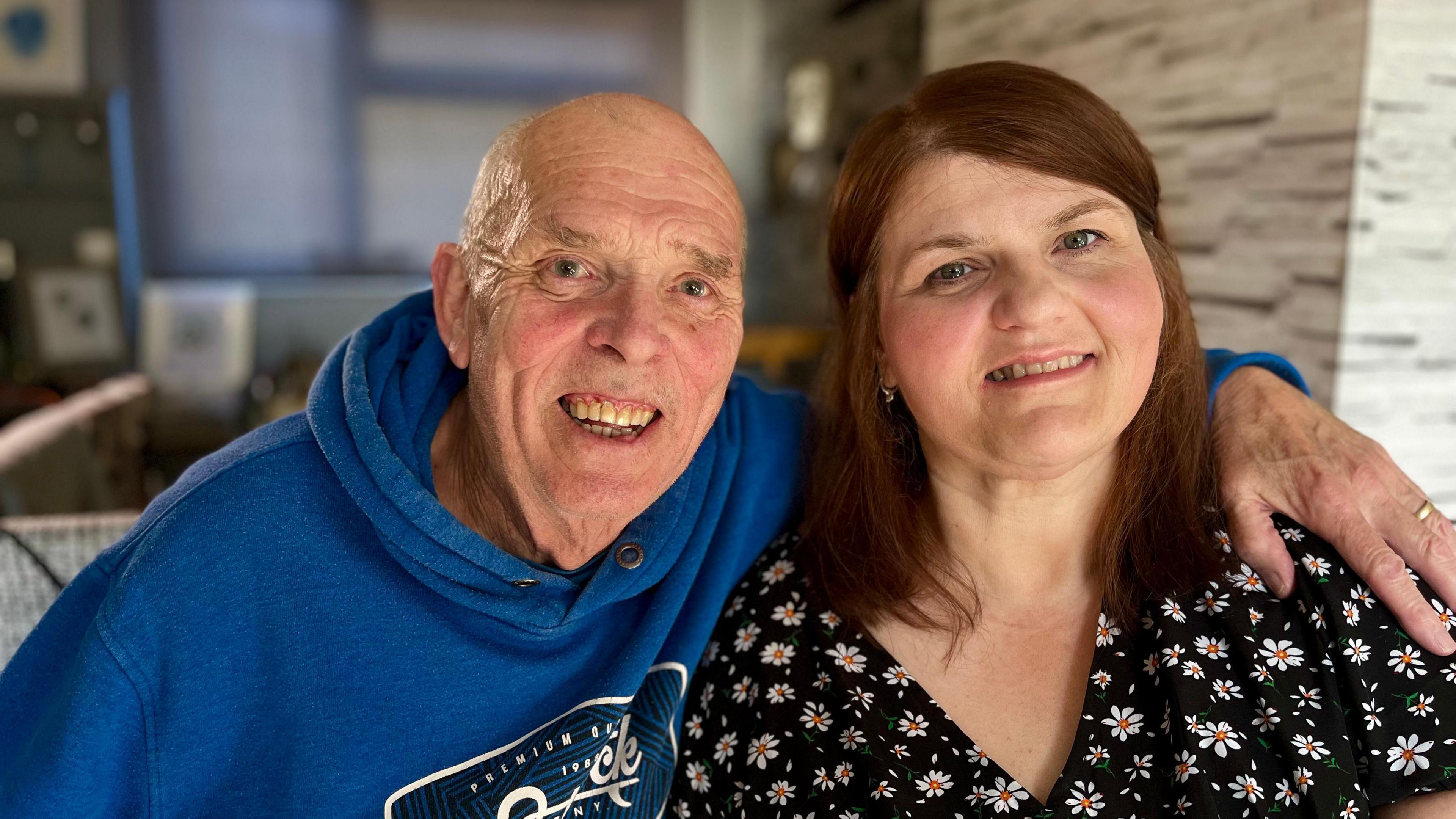'Doctors were amazed I survived my stroke'

Dionne Hudson is urging people to act fast if they suffer symptoms of a stroke
- Published
A woman told by doctors she had survived a stroke by a miracle after she went to bed with symptoms has spoken of the importance of acting as soon as the signs first appear.
Dionne Hudson’s arm went numb and she could not grip a phone but she ruled out a stroke because her face and speech were unaffected.
However, when she woke up the following morning her condition worsened, prompting her to call 999. Within 25 minutes, she was in hospital having a CT scan.
It emerged she had experienced an ischaemic stroke and was partially paralysed on the left side of her body.
Ms Hudson, 58, from Surrey, said: "The doctors were amazed that I had survived my stroke, as it had actually occurred the night before I called 999.”

Secamb's Mollie Blackman answered the 999 call
Mollie Blackman, based at the South East Coast Ambulance Service (Secamb) control centre in Medway, took the emergency call from Ms Hudson.
"Making that call as soon as you notice any sign of a stroke is so important because the sooner a patient receives life-saving treatment, the greater their chances of recovery," Ms Blackman said.
Doctors told Ms Hudson it was a miracle she had survived the stroke but warned her that her recovery could take up to a year.
Over the past 12 months, Secamb responded to 13,635 suspected stroke calls, equivalent of a suspected stroke call every 40 minutes.
"I’m so grateful for the quick response from the ambulance and hospital staff, as their care has meant I’m now at home with my husband and daughter and working hard on the road to recovery," Ms Hudson said.
What are the signs of a stroke?
A stroke occurs when blood stops flowing to a part of your brain.
The first signs include:
face weakness – it might be hard to smile, and one side of your face may droop
arm weakness – you may not be able to fully lift both arms and keep them there because of weakness or numbness in one arm
speech problems – you may slur your words or sound confused
Other symptoms might be:
sudden weakness or numbness on one side of your body (including in your leg)
sudden loss of vision or blurred vision in one or both eyes
sudden difficulty speaking or thinking of words
sudden memory loss or confusion
sudden severe headache
sudden dizziness, unsteadiness or a sudden fall, especially with any of the other signs
Source: NHS.uk, external
Follow BBC Surrey on Facebook, external, and on X, external. Send your story ideas to southeasttoday@bbc.co.uk, external or WhatsApp us on 08081 002250.
Related internet links
Related stories
- Published29 October 2024
